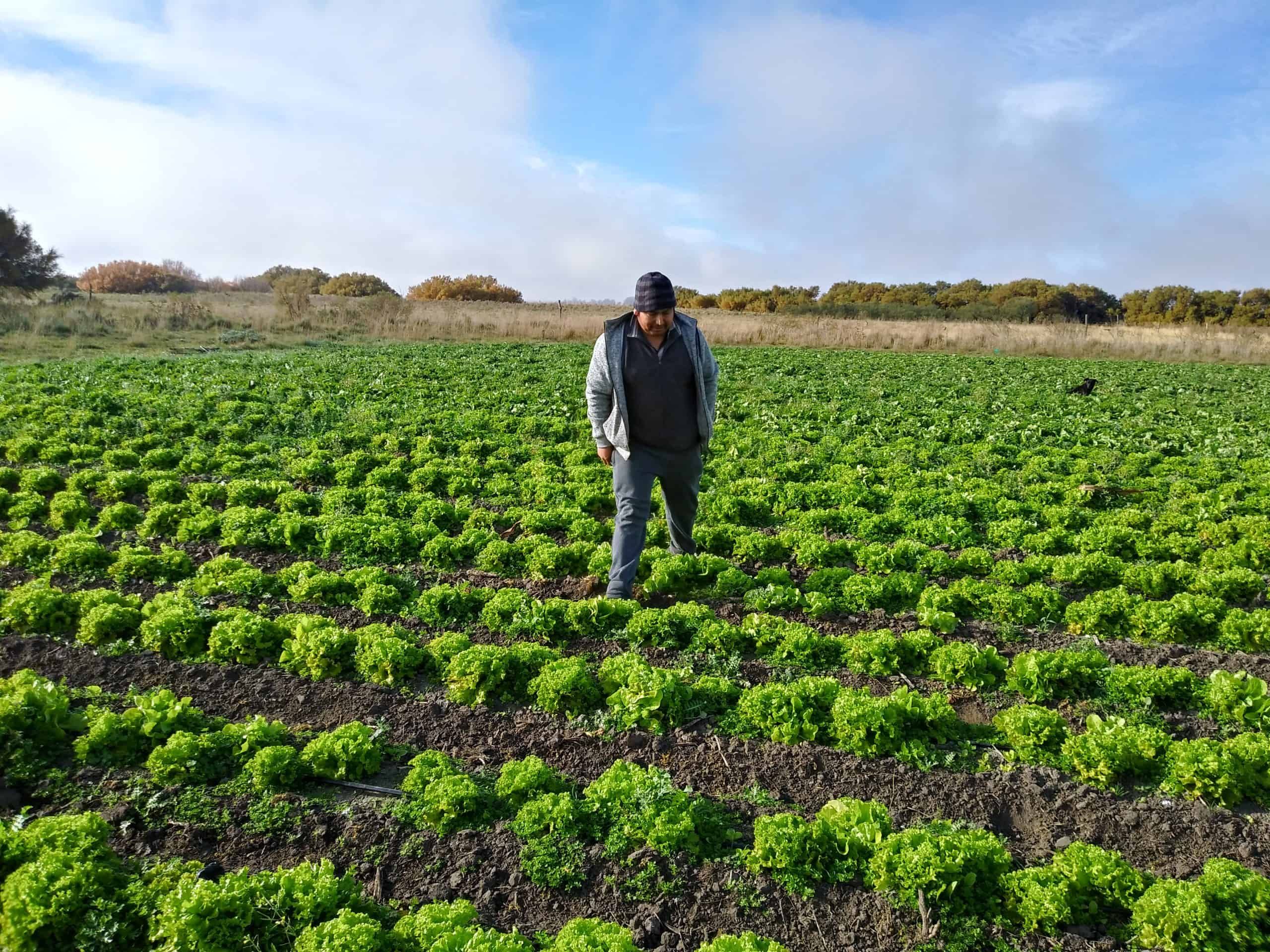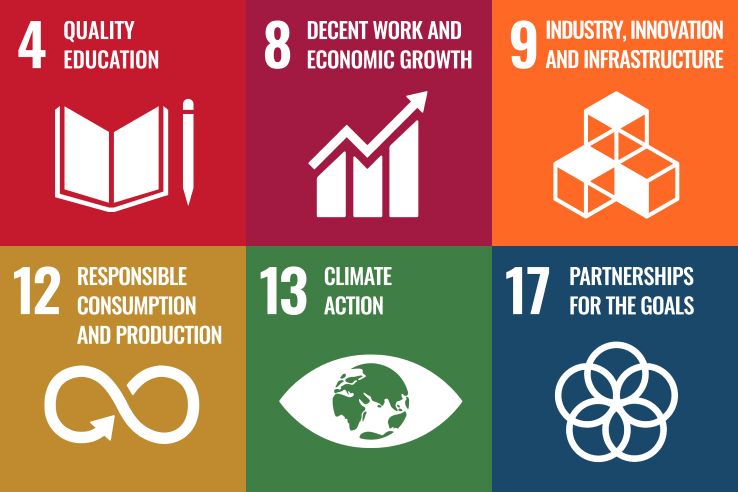Main Navigation
Argentina
Overview
Argentina's agenda for economic reform emphasizes growth, employment and sustainability.
Argentina has the third-largest economy in Latin America. While well-diversified, it has recently experienced a slowdown in economic progress with low growth and a rise in unemployment. Fluctuations in growth and recession have negatively impacted productivity as well as investments in technology. This has led the government to pursue structural changes that can facilitate growth, employment and sustainability within the context of an inclusive, green economy.
Argentina has already taken forward a series of important commitments in environmental and socio-economic matters, assuming Voluntary Commitments on emission reduction according to the Paris Agreement and promoting an agenda within the framework of its G20 Presidency (2018) focused on the “Future of Work”, “Sustainable Future of Food” and “Infrastructure for Development”. A Minimum Standard Law on Climate Change was also recently approved, setting standards for climate protection within policy strategies as well as a law prohibiting the use of microplastics in cosmetics and housekeeping products.
Photo credit: Rodolpho Morel, ILO
Argentina has the third-largest economy in Latin America. While well-diversified, it has recently experienced a slowdown in economic progress with low growth and a rise in unemployment. Fluctuations in growth and recession have negatively impacted productivity as well as investments in technology. This has led the government to pursue structural changes that can facilitate growth, employment and sustainability within the context of an inclusive, green economy.
Argentina has already taken forward a series of important commitments in environmental and socio-economic matters, assuming Voluntary Commitments on emission reduction according to the Paris Agreement and promoting an agenda within the framework of its G20 Presidency (2018) focused on the “Future of Work”, “Sustainable Future of Food” and “Infrastructure for Development”. A Minimum Standard Law on Climate Change was also recently approved, setting standards for climate protection within policy strategies as well as a law prohibiting the use of microplastics in cosmetics and housekeeping products.
Argentina subsequently joined PAGE in 2018. The partnership focuses on governance; technical analysis to inform policymaking; vocational training to support the labor market; and sustainable product development and finance for technological innovation, including fiscal incentives, sustainable public procurement schemes and sustainable financial instruments.
During the inception phase in 2019, PAGE set out to identify priorities for engagement with key stakeholders in Argentina. However, economic crisis, governmental changes and political instability in the region impacted developments. In 2020, PAGE worked to build foundations for coming work, engaging with the new government. Particularly of note, in December 2020, Argentina submitted a new Nationally Determined Contribution to the UNFCCC, integrating just transition and sustainable jobs as guiding principles for the first time.
Sustainable Development
Aligning with the goals of the country, PAGE work aims to support SDGs 4 (Quality Education), 8 (Decent Work and Economic Growth), 9 (Industry, Innovation and Infrastructure), 12 (Responsible Consumption and Production), 13 (Take urgent action to combat climate change and its impacts), and 17 (Partnerships for the Goals) in Argentina.
COVID-19 and Green Recovery
While the combination of the COVID-19 crisis and changeover in governance affected PAGE Argentina’s inception year, progress was made to link recovery with national efforts towards building an inclusive and green economy. As the country set out plans for economic recovery, PAGE collaborated with national counterparts to develop a proposal for additional green recovery support through PAGE.
This green recovery support will work to strengthen the design and implementation of sectoral plans framed in the Nationally Determined Contributions to the Paris Agreement, specifically for priority economic sectors that have high potential to aid in greening employment and production. PAGE will partner notably with the National Climate Change Cabinet — which includes the line ministries in charge of leading the development of economic stimulus — to develop sectoral green recovery scenarios and related sustainable industrial reconversion plans. This includes specific strategies for labour adaptation and employment promotion. The work will also include a capacity-building programme for political decision-makers and economic actors involved in climate change mitigation strategies, targeting an environmentally and socially sustainable recovery of the economy, and will facilitate the development of financial instruments and standards for supporting the implementation of the recovery policies.
PAGE Milestones
- 2018
Argentina joins PAGE
PAGE National Steering Committee established
First workshop held to identify priority workstreams for the inception phase and support the theory of change
- 2019
National coordinator onboarded
Inception report completed
Inception mission held, including a high-level launch event
Green economy stocktaking study initiated
PAGE co-organized a Green Jobs Fair with tripartite constituencies and the Ministries of Environment, and Production and Labour
First South-South exchange forum on technology as a tool for global education on green economy co-organised by PAGE Uruguay and Argentina
- 2020
Draft National Strategy for Just Transition developed by tripartite committee presented in ITC-ILO event
Tripartite validation workshop for the Stocktaking Report and Diagnostic of the Just Transition to a Green Economy
Study on “Linkages between the 2030 Agenda and Just Transition for Green Recovery” finalized
Formation of two boards within the National Cabinet of Ministers on Climate Change: on Just Transition and Labour and on Sustainable Production
Green Economy Indicators developed for the National Center of Environmental Information of the Ministry of Environment
First Tripartite High-Level Dialogue Event on Green Economy and Just Transition held
Progress in 2020: A Snapshot
Analysis for a Just Transition
Following the finalization of Argentina’s Green Economy Stocktaking Study, a validation workshop on 24 July provided an opportunity to […]
Following the finalization of Argentina’s Green Economy Stocktaking Study, a validation workshop on 24 July provided an opportunity to present additional analysis in the area of green jobs and just transition – bringing together the Ministries of Production, Labour and Environment, representatives from three different workers’ unions and from the employers’ association, the Industrial Union of Argentina, the think tank CIPPEC (Center for the Implementation of Public Policies for Equity and Growth) and various universities, as well as representatives of the UN Country Team.
To complement the study, PAGE developed an analysis on the “Linkages between the 2030 Agenda and Just Transition for Green Recovery”. Finalized in August 2020, the analysis emphasizes how green economy can be a tool to achieve sustainable development with a special focus on poverty eradication and was also shared through a National High-Level Dialogue, on 15 December 2020.
Fostering social dialogue
PAGE organized a virtual High-Level National Dialogue on Green Economy, engaging the three government ministries working with […]
PAGE organized a virtual High-Level National Dialogue on Green Economy, engaging the three government ministries working with PAGE on 15 December 2020. The event offered an opportunity for key stakeholders to strengthen coordination on policies for a Just Transition and increase awareness and momentum on sustainable and inclusive outcomes. Opened by the European Commission for Latin America and the Caribbean and the UN Regional Representative, it featured a discussion with the Ministers of Production, Labour and Environment as well as the high-level representatives of the Union Central and the Industrial Union. This event was the first in a series of dialogues to be organized on an annual basis, first at parliamentary level, then on national and finally, on the federal level — with the ultimate goal of developing a national roadmap to implement key Green New Deal policies.
Developing Green Performance Indicators to inform policymaking
In December 2020, PAGE finalized the ‘Diagnostic on Country Indicators for a Green Economy’ to provide a decision-making tool for […]
In December 2020, PAGE finalized the ‘Diagnostic on Country Indicators for a Green Economy’ to provide a decision-making tool for policymakers. The diagnostic provides environmental performance indicators, providing a technical resource for informed decision-making on IGE. The report evaluates Argentina’s environmental performance with an emphasis on the OECD Green Growth indicators — particularly those related to environmental productivity and economic resources — and those linked to SDGs 8 and 12. It identifies priority economic sectors, the political interventions necessary to improve performance against these indicators and related data gaps.
PAGE is currently utilising the findings to develop indicators for an environmental information system that will be hosted in the National Environmental Information Centre in 2021.
New ministerial boards for green jobs and production reforms
In September 2020, PAGE supported the establishment of two additional ministerial boards, coordinated by the Ministry of Labour and […]
In September 2020, PAGE supported the establishment of two additional ministerial boards, coordinated by the Ministry of Labour and under the National Cabinet of Ministers on Climate Change: the “Green Jobs and Just Transition Board” and “Sustainable Production Board”. The boards act as a key mechanism for green economy issues to be officially discussed in the policymaking process and can be used by the National Cabinet to channel PAGE-supported policy proposals towards national policymaking at the highest inter-ministerial level.
Ministerial collaboration on employment in the environmental sector
PAGE provided a platform for the development of an agreement between the Ministry of Labour and the Ministry of Environment and […]
PAGE provided a platform for the development of an agreement between the Ministry of Labour and the Ministry of Environment and Sustainable Development, to promote employment and professional training in the environmental sector. It was complemented by a protocol to promote green jobs together with the employment office, which outlines job training activities for up to 650 young people relating to sustainability and project management.
Analysis and policy development: just transition and green employment
In 2020, PAGE finalized the ‘Labour Diagnostic of the Just Transition to a Green Economy’ report. The research is composed of five […]
In 2020, PAGE finalized the ‘Labour Diagnostic of the Just Transition to a Green Economy’ report. The research is composed of five interrelated studies that provided inputs for different elements of the country’s IGE transition, including: 1) a comparative static analysis – an estimate of green employment in 2018; 2) a sector analysis of circular economy with regard to its transformative potential and labour impacts; 3) sector scenarios; 4) an analysis of future job skills requirements and the professional training system; and 5) a summary of policies required to ensure a fair transition.
The study will feed into the design and implementation of policies aimed at promoting a fair transition process, with a special focus on gender. It specifically targets the National Plan for the Promotion of Green Employment, which is expected to provide a concrete roadmap for greening Argentina’s active labour market policies, for which development began in November 2020.
Sustainable finance strategies
To support Argentina in the development of sustainable finance, PAGE developed a financial instrument in 2020 with the Public Bank […]
To support Argentina in the development of sustainable finance, PAGE developed a financial instrument in 2020 with the Public Bank of the Federal State of Chaco, based on Ecosystem Valuation. This model will be replicated in other provinces with the financial instrument being adjusted to the specific sectoral structure of the sub-regional economy.
PAGE will also develop a financial stimulus strategy intended to serve the Active Labour Market Policies of the Ministry of Labour, as well as the National Investment Bank for Development of the Ministry of Production.
Global training programmes
Between April and June 2020, PAGE facilitated the participation of a tripartite delegation of key decision-makers from the […]
Between April and June 2020, PAGE facilitated the participation of a tripartite delegation of key decision-makers from the government Ministries of Labour, of Environment, and of Productive Development, the trade unions and the business sector, in two ITC-ILO training courses. Ten representatives involved with the PAGE programme in Argentina participated in the “Green Jobs for Sustainable Development” course, and five representatives participated in the course on “Managing Just Transition Policies”.
Following the training, PAGE coordinated a joint presentation on 11 June from the three Ministries as well as the Workers Union Centrals and Employers, presenting a draft National Strategy for Just Transition and addressing entry points for sustainability within employment, industrial promotion, trade unions and business policies. A working group was subsequently established to oversee the development of the three additional position papers, analysing gaps and opportunities to support the development of a tripartite ‘Just Transition and Green Recovery Strategy’ for Argentina.
South-South Collaboration
On 18 November 2020 PAGE, through ILO representation, presented in the webinar “Green jobs and a just transition: Country perspectives” […]
On 18 November 2020 PAGE, through ILO representation, presented in the webinar “Green jobs and a just transition: Country perspectives” hosted by GGKP and in collaboration with GIZ GET under the “Green Economy Transformation” project. The webinar featured a discussion on how governments and businesses can lead a just transition to greener economies and included specific perspectives from PAGE countries South Africa and Argentina. The platform allowed national counterparts to share their respective lessons learned and best practices for overcoming social, political and technical challenges. The event was then followed by bilateral discussions between South African and Argentine workers unions to share experiences on just transition, with further dialogue planned for the future. Lessons learned from South Africa will also be featured as a case study within the PAGE Argentina Workers Union position paper on Green Recovery and Just Transition, currently under development.




